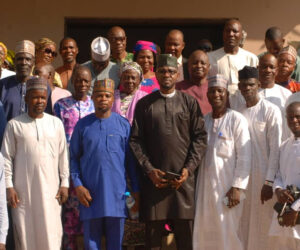From Okwe Obi, Abuja
Worried by the wave of hunger and malnutrition on the continent, the United Nations (UN) has demanded an urgent need for Africa to transform its food systems.
The UN Under-Secretary-General and Executive Secretary of the Economic Commission for Africa (ECA), Claver Gatete, made the demand at the Africa Food Systems Forum (#AFSForum2025) in Dakar, Senegal, yesterday.
Gatete highlighted the paradox of Africa’s food crisis, where a continent with extraordinary potential remains unable to feed its own people.
According to him, the rising costs of food and inputs have left millions hungry, even in countries that once enjoyed relative stability, adding that these global crises amplify our own structural challenges.
He said: “We meet today at a critical juncture for the world and Africa. Globally, food systems are under immense pressure. Conflicts, climate shocks, disrupted supply chains and trade wars have exposed vulnerabilities everywhere.
“Our continent holds more than 60 per cent of the world’s uncultivated arable land and abundant water resources, yet we imported food worth up to $115 billion in 2024. In addition, we are home to the youngest population in the world, with energy and ideas to drive transformation, yet too many of our youth remain unemployed.
“We have abundant sunlight and biodiversity, yet climate change threatens our fields and forests more than any other region – even though Africa contributes less than 4 per cent of global climate emissions.”
After more than a decade of Comprehensive Africa Agricultural Development Programme (CAADP) implementation, Gatete said Africa has seen stronger institutions, better policy alignment and agricultural growth, yet progress has fallen short, with hunger still rising.
“It is a welcome development that the newly adopted CAADP Strategy and Action Plan (2026–2035) seeks to increase agrifood output by 45 per cent and to reduce post-harvest losses by 50 per cent by the end of 2035.
“The declaration also seeks to increase the share of locally processed food to 35 per cent of agrifood GDP within the same period. Financing is therefore crucial as the era of abundant aid is over,” he said.
In a post-official development assistance world, he said domestic resources and private capital must lead the way.
“Pension funds, remittances, diaspora bonds and innovative instruments like green and resilience bonds offer vital opportunities. And let’s not forget excellencies, that Africa’s greatest asset is its people – especially its youth.
“Our median age is just 19. And by 2050, one in three young people in the world will be African. If given land, finance, technology and markets, they can not only feed Africa, but the world,” he added.








